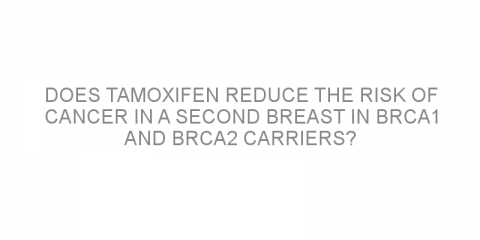In a nutshell This study evaluated whether the Body Mass Index (BMI) influences the quality of life of breast cancer patients treated with radiotherapy. Some background The Body Mass Index (BMI) is a weight to height ratio calculated by dividing a person’s weight in kilograms to their square of height in meters. A normal BMI ranges...
Read MoreOngoing treatment(s)-Radiation Posts on Medivizor
Comparing three different methods of radiation therapy and their effects on quality of life in patients with prostate cancer
In a nutshell This article looked at the effects of radiation therapy on bowel and urinary function in patients with prostate cancer. Three different methods of radiation therapy were compared:intensity-modulated radiotherapy (IMRT), proton beam therapy (PBT) and 3-dimensional conformal radiation therapy (3DCRT). Some background Radiation therapy...
Read MoreComparing the safety and efficacy of laparoscopic versus open surgery for patients with rectal cancer
In a nutshell The present study compared the safety and efficacy of laparoscopic surgery (LS) and open surgery (OS) in patients with rectal cancer. The study found that LS was as safe and effective as OS in selected patients with rectal cancer. Some background Rectal cancer is cancer in the lower part of the large intestine (rectum). Most patients...
Read MoreOperative versus non-operative treatment for recurrent rectal cancer: impact on long-term survival
In a nutshell The present paper compares long-term survival rates of surgery versus non-operative treatments in patients with recurrent rectal cancer (RRC). Some background Rectal cancer is cancer in the final section of the large intestine, or rectum. Surgery to remove the cancer is the first choice of treatment, but chemotherapy with or...
Read MoreThe association between insulin blood levels and risk of death in breast cancer patients
In a nutshell The present study evaluated the relationship between high insulin levels in the blood stream and the risk of cancer-related mortality. Its authors report that women with higher-than-normal insulin levels are at higher risk of death due to breast cancer. Some background Breast cancer has been shown to be more common in people who...
Read MoreComparison between two techniques of breast surgery: 20-year follow-up
In a nutshell This study compared breast cancer recurrence rates and overall survival between women treated with breast-conserving surgery versus radical mastectomy. Results showed that in the case of small tumors, breast-conserving surgery is the recommended option. Some background Most patients with breast cancer have surgery to remove the...
Read MoreComparison between different chemotherapy regimens for early breast cancer
In a nutshell The present study compared the long-term efficacy and safety of different adjuvant chemotherapy regimens for breast cancer. Main results: chemotherapy clearly provides survival benefits; the higher the dosage, the higher the survival rates, despite more toxicity. Some background Many women with early stage breast cancer receive...
Read MorePostoperative radiotherapy prevents breast cancer recurrence and prolongs survival
In a nutshell This study evaluated if strategies to prevent cancer recurrence are associated with prolonged survival 15 years after treatment. Their main findings were that postoperative radiation managed to prevent cancer recurrence and was associated with higher rates of long-term survival. Some background Early breast cancer is often treated...
Read MoreDoes Tamoxifen reduce the risk of cancer in a second breast in BRCA1 and BRCA2 carriers?
In a nutshell The risk of breast cancer is high (~80%) in women who inherit a damaged (mutated) gene called BRCA1 or BRCA 2 (‘BRCA carriers’). Following the first diagnosis, their risk of developing another tumor in the second breast within 10 years is 30%. Some background Some types of breast cancer need estrogen (female sex...
Read MoreChemotherapy Treatments For Triple-Negative Breast Cancer
This paper reviews chemotherapy options for triple-negative breast cancers. Breast cancer cells express 3 main receptors that can be targeted with therapy: Estrogen receptors (ER), Progesterone receptors (PR) and HER2. Triple-negative breast cancers (TNBCs) do not express these 3 receptors and make up approximately 15% of breast cancers. Such tumors do...
Read MoreChemotherapy and Tamoxifen versus Tamoxifen alone after Breast Cancer Surgery
In a nutshell In this study chemotherapy and Tamoxifen were compared to Tamoxifen alone as complementary treatments after surgery for breast cancer. The main finding was that better results are obtained by adding chemotherapy. Some background Tamoxifen is a drug used for tumors which require the female hormone estrogen to grow. It...
Read MoreStandard Chemotherapy versus Capecitabine (Xeloda) in Older Women with Early-Stage Breast Cancer
In a nutshell This trial compared standard chemotherapy regimens and Capecitabine (Xeloda) in women over 65 years old. The main outcome was that standard chemotherapy worked better in this age group. Some background Capecitabine is generally used in breast cancer resistant to other chemotherapy. It is also the first approved treatment that can be...
Read More










